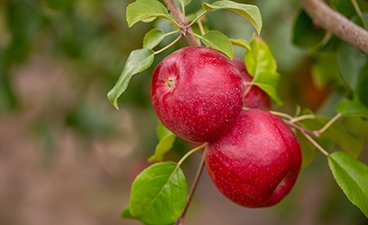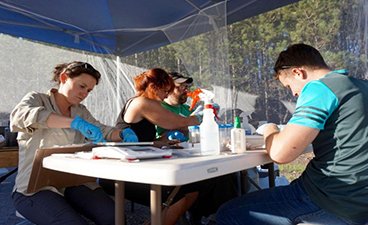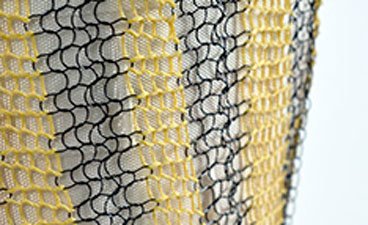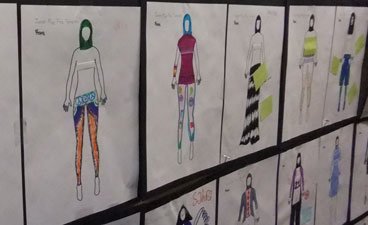
Health and Nutrition
Minnesota's poverty rate is low, but statistics mark some of the largest health and economic disparities in the country. The University of Minnesota focuses on making systemic changes that promote the health and wellbeing of Minnesotans.
Research and Extension are committed to:
- Addressing family and community systems to support food knowledge, accessibility, and affordability
- Addressing relationships between diet, nutrition, physical activity, and human disease
- Developing methods to help the food infrastructure provide safe and healthy food that people desire
- Addressing critical issues affecting physical and mental health; e.g., drug/alcohol abuse, aging, economics
Research Highlights

With its exceptional apple scab tolerance, delightful flavor, and ease of cultivation, Triumph is the perfect addition to any backyard or home orchard.
Triumph® apples have a pleasantly tart flavor, coupled with a well-balanced sweetness, making it great for fresh eating or adding a burst of flavor to your favorite recipes. Triumph® also boasts two genes that fight against the dreaded apple scab fungus, reducing the need for chemical sprays and making it an eco-friendly choice for organic growers and homeowners looking for lower maintenance trees.
Triumph® was released in 2021, and in the years since, licensees have grown out rootstocks and are now supplying trees to interested local garden centers. “Since Triumph® is such a new variety it may not be widely available just yet but check with your local nursery or garden center to see if they are planning to carry it,” explains Bedford. “Be sure to let them know that you’re interested in growing a Triumph® tree.”

Researchers from the University of Minnesota and the Grand Portage Band of Lake Superior Chippewa discovered fish from 18 out of 19 testing sites in northern Minnesota contained contaminants of emerging concern (CECs) such as pharmaceuticals, hormones and personal care products. This research illustrates the ubiquity of pharmaceuticals in the environment and their potential impacts on fish — both in expected environments like wastewater but also in more surprising places, like undeveloped lakes.

The University of Minnesota apple breeding program announces its 29th apple release: the MN33 variety, which will be sold under the brand name Kudos™.
Kudos™ is a beautiful red apple with a unique combination of traits including an excellent crisp, juicy texture and a sweet, well balanced flavor with occasional tropical overtones. It was developed by crossing the U of M hits Honeycrisp and Zestar!®, making it a sibling of the popular SweeTango® apple.

In 2012, UMN providers and researchers from the School of Public Health, Academic Health Center (Office of Emergency Preparedness), and Department of Family Social Science partnered with colleagues at the Minnesota Department of Health to develop an innovative self-care app for emergency responders in the field. In early 2020, they again refined the app as a simplified in-the-field tool for first responders engaged in responding to the COVID-19 epidemic.

Early in the pandemic, concerns about N95 respirator shortages dominated the headlines around the world and there was an immediate need for safe alternatives that could also be quickly and effectively mass produced. But as supply chains stabilized, UMN researchers could focus on developing masks that not only block the virus but effectively kill it on contact.

Previously, federal regulations prevented the study of cannabinoids and other illicit drugs, which made it difficult or even impossible to study the effects of these types of compounds. Notably, the FDA advises against the use of CBD, tetrahydrocannabinol, and marijuana during pregnancy or while breastfeeding, yet marijuana use during pregnancy is on the rise, likely because of perceived limited risks and changing social norms. A team of researchers at the UMN set out to close knowledge gaps related to long-term CBD safety and impacts by conducting a first-of-its-kind lab study on mice.

Researchers at the University’s Design of Active Materials and Structures Lab and Wearable Technology Lab recently developed a temperature-responsive textile. The new textiles resemble typical knits, except they are created with a special category of active materials—known as shape memory alloys (SMAs)—which change shape when heated.

A two-year research/design project funded by the MAES State Reserve Funds came to fruition in 2015 with 25 East-African middle school girls from the Cedar-Riverside community walking the runway and modeling active wear they co-designed UMN researchers.